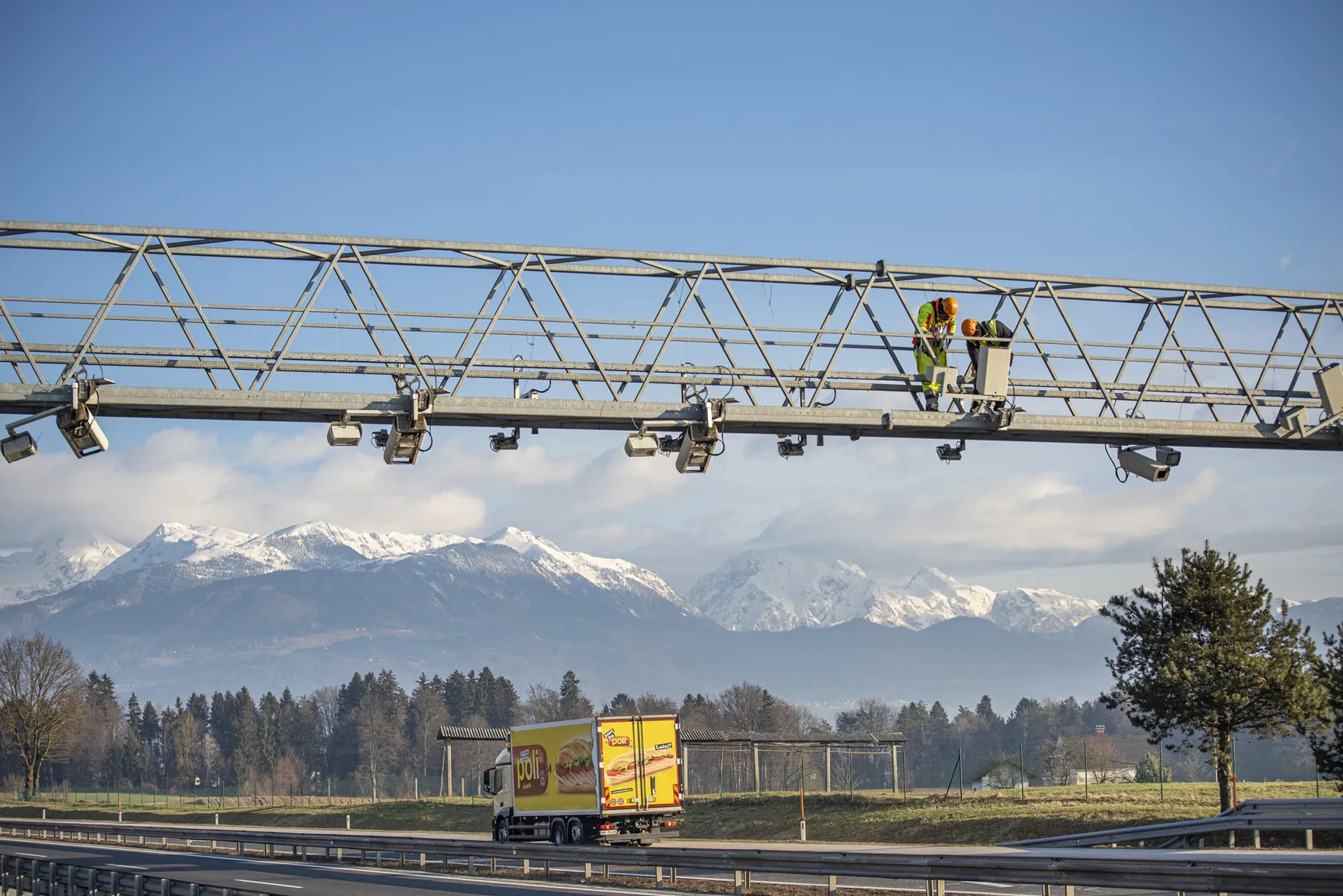
Slovenia toll operator Dars now allows for truck and freight interoperability with Toll4Europe solutions across Europe.
Q-Free and Telekom Slovenije upgraded the Dars tolling back office system to integrate charging and payments, allowing a single on-board unit (OBU) to pay tolls seamlessly across borders.
It means truck companies and drivers can travel through Germany, Poland, Austria and several other European countries using a single toll transponder.
Based in Germany, Toll4Europe is one of the largest tolling service providers on the continent, delivering interoperable toll systems to connect numerous interfaces, IT systems and standards for communication and invoicing.
“This is a major improvement for freight customers across Europe,” said Q-Free CEO Mark Talbot. “Truck drivers, freight companies, and fleet vehicles no longer need to use multiple accounts and transponders to move people and goods across borders. Now they can sign up once, get one invoice, and reduce the headaches of international travel and shipping.”
In 2016, Q-Free and consortium partner Telekom Slovenije were awarded a 10-year contract by Dars to develop a multi-lane, free-flow electronic toll collection (ETC) system for Slovenia's motorway network, specifically for vehicles over 3.5 tonnes.
Opened in 2018, it now covers 625km. Q-Free built and maintains 133 tolling gantries throughout the network and delivered the operational back office, while Telekom Slovenija manages the commercial back office.









